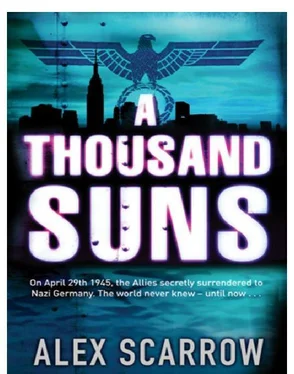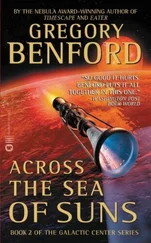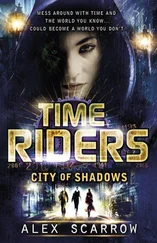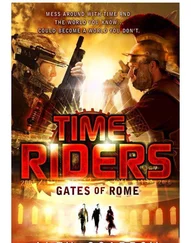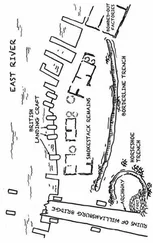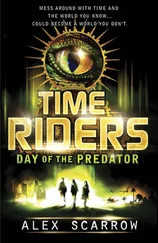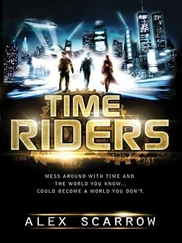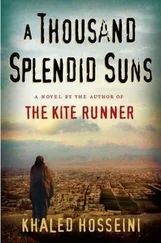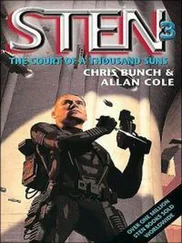Alex Scarrow - A thousand suns
Здесь есть возможность читать онлайн «Alex Scarrow - A thousand suns» весь текст электронной книги совершенно бесплатно (целиком полную версию без сокращений). В некоторых случаях можно слушать аудио, скачать через торрент в формате fb2 и присутствует краткое содержание. Жанр: Триллер, на английском языке. Описание произведения, (предисловие) а так же отзывы посетителей доступны на портале библиотеки ЛибКат.
- Название:A thousand suns
- Автор:
- Жанр:
- Год:неизвестен
- ISBN:нет данных
- Рейтинг книги:4 / 5. Голосов: 1
-
Избранное:Добавить в избранное
- Отзывы:
-
Ваша оценка:
- 80
- 1
- 2
- 3
- 4
- 5
A thousand suns: краткое содержание, описание и аннотация
Предлагаем к чтению аннотацию, описание, краткое содержание или предисловие (зависит от того, что написал сам автор книги «A thousand suns»). Если вы не нашли необходимую информацию о книге — напишите в комментариях, мы постараемся отыскать её.
A thousand suns — читать онлайн бесплатно полную книгу (весь текст) целиком
Ниже представлен текст книги, разбитый по страницам. Система сохранения места последней прочитанной страницы, позволяет с удобством читать онлайн бесплатно книгу «A thousand suns», без необходимости каждый раз заново искать на чём Вы остановились. Поставьте закладку, и сможете в любой момент перейти на страницу, на которой закончили чтение.
Интервал:
Закладка:
So much like Lucian, always asking bloody questions.
Max suspected Pieter had volunteered because deep down he’d never stopped believing in his beloved Fuhrer, something he would never admit to in public now. There was a lot that he didn’t have in common with Pieter, their politics, their background, their basic view on life differed, and yet it was the shared experiences of the last three years that had forged a rock-steady partnership between them. They had seen three navigators and two gunners come and go, and most of the other original personnel of KG-301 had died, been wounded or transferred to other undermanned squadrons. He wondered, if both of them survived the war, whether they would stay in touch with each other.
Probably not.
They would have nothing in common to talk about other than their wartime experiences. Pieter’s world was factory floors, beer cellars and women. Max’s world had once been teaching, a long, long time ago in his pre-war life.
‘I suppose I want my life back, Stef. I want to grow old in a quiet country village where I know everyone’s face, and the most terrifying thing that happens to me every day is crossing the road.’
He turned to the young man. ‘If the Russians take Germany, we can’t expect an ounce of mercy, and I don’t expect they’ll show us any. If they take Germany, Stef, we’re all as good as dead.’
‘We have to succeed then, don’t we, sir?’
Max nodded. ‘Yes, we do, lad.’
Chapter 25
27 April 1945, a southern suburb of Stuttgart
Dr Hauser stood in the middle of the lab and stared at the device. It looked like a small beer keg surrounded by a frame of scaffolding.
This is my creation, MY creation.
Hauser felt the need to remind himself regularly that this thing was his work. Of course, the Jew had made a contribution, but in the end it was just a different way of calculating the same process, and it was obvious now, looking back. Hauser knew he’d have figured it out for himself sooner or later.
This was the fruit of all his hard work; the Jew had merely helped.
Without him the project would never have been put before Albert Speer and consequently would not have received the go ahead.
To be fair, the Jew, Schenkelmann, and his two assistants had done a good job assembling the device, but Hauser had designed the mechanics of the bomb and had drawn out the schematic; after all, he’d spent enough time poring over Heisenberg’s bomb designs to know what the best configuration would be.
If he was going to be totally honest about the distribution of credit, the Jew deserved something for his calculations on accelerating the critical mass, but it was he, Dr Karl Hauser, who had really made this project happen.
Hauser admired the compact device, taking pride in the efficiency of the design.
Such a small, beautiful thing to cause so much destruction.
He approached his bomb and tenderly ran his hand along the metal casing, sensing the kinetic energy inside, the explosive monster lying inert, asleep, waiting.
‘Dr Hauser?’
Hauser felt his skin crawl at the sound of the little Jew’s voice. He turned round to face Joseph Schenkelmann. He was a short, slight man in his late forties, thick dark hair, greying at the temples.
‘What is it, Joseph?’
‘Sir, d-did you speak with the Fuhrer?’ the small man stuttered nervously.
‘Of course I did.’
‘And you explained the… the p-problem to him?’
Hauser found his temper quickly fraying at the mention of the ‘old issue’. He forced a smile at Schenkelmann and consoled himself with a little truth.
I won’t have to put up with him for much longer.
‘He is aware of the risk, but is still keen to have the bomb readied for removal tomorrow, Joseph.’
Schenkelmann looked incredulous. ‘He knows?… and still he wants to p-proceed?’
‘Yes, I explained the risk, and he and I agree it is marginal. Now if you don’t mind — ’
Schenkelmann seemed to turn a shade paler than his usual complexion. ‘M-marginal? Please… Dr Hauser, you’ve seen the c-calculations for yourself… you’ve seen it. The danger of an infinite reaction is — ’
‘- is acceptable given the current situation. Now, we have discussed this I don’t know how many times and I am growing tired of hearing — ’
‘The danger of the infinite reaction is f-fifty per cent. Dr Hauser, sir… we are gambling the world on a one in two chance!’
Hauser felt something in him snap. He reached out and grabbed Schenkelmann by the arm and spoke in a low, menacing voice. ‘Now listen. The bomb will be readied for the journey tomorrow and you will also prepare the arming codes tonight. There will be no more talk about this infinite chain reaction. Your calculations on this are exaggerated, and they always have been.’
Hauser knew Schenkelmann’s figures were right.
They were right when first he came across the theory papers and they remained unchanged now. The theory, quite simply, was pure genius. Schenkelmann had shrewdly proposed accelerating the chain reaction by firing two uranium bullets at opposite ends of the mass. The advancing ripples from both ends would cause overlapping shockwaves to quadruple exponentially the rate of acceleration. A reaction like that would require so much lower a critical mass of U-235 than had previously been thought. Heisenberg had calculated that tons of U-235 would be needed; Schenkelmann’s technique required only ounces.
The danger, as far as Schenkelmann was concerned, was that such an accelerated chain reaction might cause enough immediate energy to be released to split the nuclei of non-fissile material. The man’s figures convincingly demonstrated the probability to be high, as much as fifty per cent, that the weapon would vaporise not only its target but also an unquantifiable range beyond it.
The mathematical implication was simple, an infinite chain reaction… a doomsday bomb.
‘The figures are right, Dr Hauser.’
‘If you do not shut up now, I will have you shot, Schenkelmann. Do you understand?’
Making the threat felt good, powerful. Like throwing a punch. For a fleeting moment he felt like following through on the threat and issuing the command to one of the guards, just to enjoy the thrill of issuing an order and seeing it carried out automatically, without question. He suspected he would have made a fine officer if his expertise hadn’t prevented him from being recruited. He found giving orders so easy, so natural.
Hauser had been assigned half a dozen SS men to guard the small laboratory and keep an eye on Schenkelmann. It had been Speer’s idea. He had been worried about Schenkelmann attempting to commit suicide, sabotage or even flee from the claustrophobic confines of the small underground lab. The men were always present inside and discreetly placed outside the inconspicuous corrugated doors of the building.
Hauser regarded the soldiers as his own private army, to command as he pleased. The novelty had yet to wear off.
The lab had been built into one of the arches of a railway bridge that ran parallel to a small cobbled back street. Behind this unassuming facade, which could easily have been the premises of any small, one-man business, the stairs descended to a cellar that had once been used to store wine. Here, in a space little bigger than a generous living room, Schenkelmann and two lab assistants had been given the task of assembling Germany’s atom bomb. This cellar had been Schenkelmann’s prison since the project had begun; the Jew hadn’t seen daylight in months.
‘P-please, Dr Hauser.’
Hauser felt his face flush with anger, first his cheeks, then his forehead and his ears. He knew he looked as crimson as a baby screaming for milk.
Читать дальшеИнтервал:
Закладка:
Похожие книги на «A thousand suns»
Представляем Вашему вниманию похожие книги на «A thousand suns» списком для выбора. Мы отобрали схожую по названию и смыслу литературу в надежде предоставить читателям больше вариантов отыскать новые, интересные, ещё непрочитанные произведения.
Обсуждение, отзывы о книге «A thousand suns» и просто собственные мнения читателей. Оставьте ваши комментарии, напишите, что Вы думаете о произведении, его смысле или главных героях. Укажите что конкретно понравилось, а что нет, и почему Вы так считаете.
